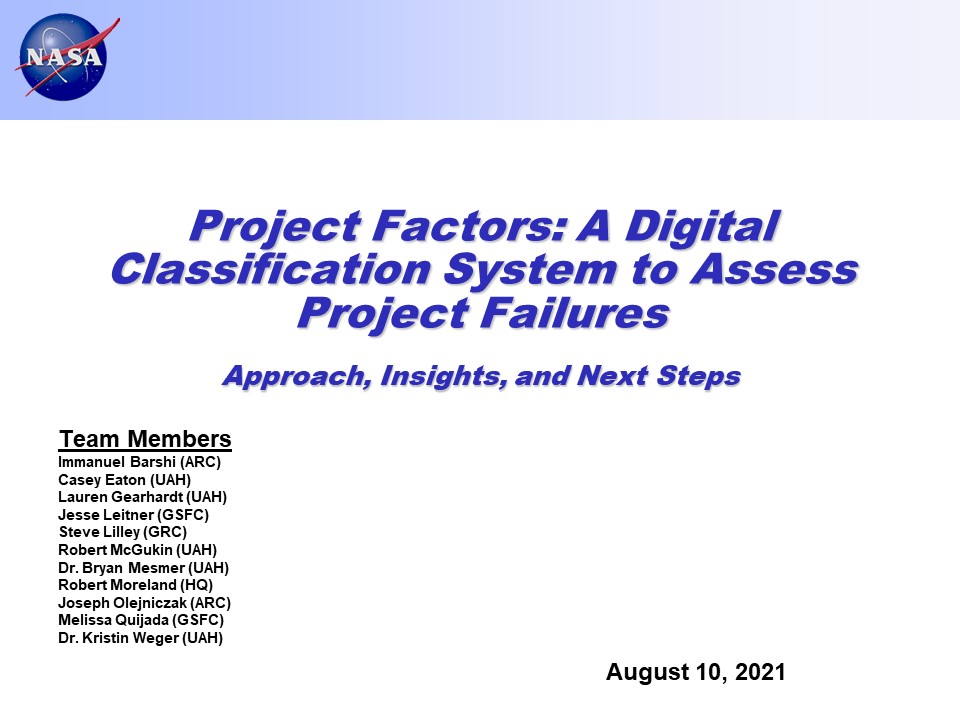Recurring Causes of Human Spaceflight Mishaps during Flight Tests and Early Operations
**Restricted to NASA CS/Contractor**
Dr. Tim Barth, NASA Engineering and Safety Center (NESC) systems engineer, and Steve Lilley, NASA Safety Center senior safety engineer, will present the findings and recommendations from a technical study recently published by the NESC. An analysis of recurring causes underlying human spaceflight mishaps that occurred during flight tests and early operations was performed. Eight mishaps from the Apollo, Soyuz, Skylab, Space Shuttle, and Constellation Programs (i.e., the Ares-1X test flight) and early commercial suborbital operations were included in the study. Detailed event analyses were performed for the historical mishaps and aggregate data analyses conducted to identify recurring issues. The nine most frequent issues were inadequate technical controls or risk management practices, incomplete procedures, system design and development issues, inadequate inspection or secondary verification requirements, failures of organizations to learn from previous incidents, inadequate schedule controls, inadequate task analyses or design processes, flaws in the design of organizations, and issues with organizational safety cultures.
The study’s goal was to use selected flight test/early operations mishap investigations to identify recurring factor patterns and provide results to current human spaceflight programs to inform and stimulate their mishap risk management efforts. Study results can provide current human spaceflight programs with data and examples to seed discussions and questions such as:
• What else can be done within my area of responsibility to ensure crew safety?
• What are we doing now that needs to be improved?
• What could be stopped and replaced with a better approach?
• What is working in other subsystems than can be extended to my subsystem?

